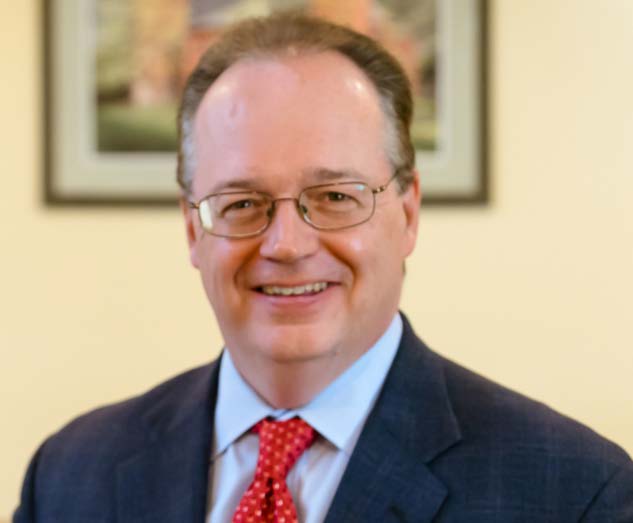 Freeman Health System has agreed to pay $9.3 million resolve allegations that it knowingly providing incentive pay to physicians who referred patients to the hospital system. The settlement resolves claims by the U.S. government that such incentive payments violated the False Claims Act and Stark Law. The Stark Law prohibits a hospital from billing Medicare for certain services referred by physicians that have a financial relationship with the hospital. A prohibited financial relationship includes when physician is compensated based on the volume of the physician’s referrals or the revenue realized through those referrals. The Stark Law is intended to ensure that physicians make referrals for health care services based solely on the medical needs of their patients rather than any financial incentives. When the Stark Law is violated, any claims made to Medicare or Medicaid for the services provided are considered "false claims" under the False Claims Act as well. Freeman voluntarily disclosed to the government that a number of its physicians were eligible for incentive compensation that may have taken into account the value and volume of their referrals. Based on an investigation following the self-disclosure, the government alleged that the hospital system knowingly compensated some of its physicians in a manner that violated the Stark Law. Specifically, the government alleged that the hospital system provided incentive pay to 70 physicians based on the revenue generated by the physicians’ referrals for diagnostic testing and other services performed. Because the hospital system self-reported the questionable incentive payments, this case was handled by the Civil Division of the U.S. Justice Department. Had this been a criminal matter, the responsible parties at the hospital could have faced significant prison sentences. If you are aware of questionable financial relationships or false claims submitted to Medicare or Medicaid, then you should consult with an experienced health care attorney immediately to protect your rights. To schedule a free and confidential consultation by telephone or in person, call my office today at (917) 652-6504 or click here to communicate with me via email. John Howley New York, New York The information you obtain at this site is not, nor is it intended to be, legal advice. You should consult an attorney for advice regarding your individual situation. I invite you to contact our law offices and welcome your calls, letters and electronic mail. Contacting us does not create an attorney-client relationship. Please do not send any confidential information to us until such time as an attorney-client relationship has been established. I practice law and offer legal services only in jurisdictions where I am properly authorized to do so. I do not seek to represent anyone in any jurisdiction where this web site does not comply with applicable laws and bar rules.
0 Comments
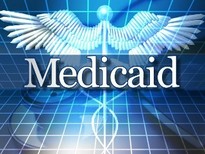 A former public administrator in Montana pleaded guilty in federal court to creating fraudulent Medicaid applications. Rita Frances Hunter admitted that she directed employees to submit materially false Medicaid applications for wards in the custody of the Public Administrator’s office. The applications falsely stated that the wards had assets below the $1,000 threshold to be eligible to receive Medicaid benefits when, in fact, the wards had more than $1,000 in assets. In one instance, a fraudulent Medicaid eligibility statement indicated that the ward had a total bank account balance of $827.27 when the ward’s funds totaled $6,919. The false statement was made to ensure that the ward would meet the monetary threshold (no more than $1,000) imposed by Medicaid. Hunter caused this statement to be stamped with her signature verifying that it was true, when in fact it was false. She also instructed her employees to fabricate bank statements to back up the false claim. Under federal statutes, submitting false applications to Medicaid may result in a prison sentence of up to five years without parole, plus a fine up to $250,000 and an order of restitution. A sentencing hearing will be scheduled in this case after the U.S. Probation Office completes a pre-sentence investigation and report. A health care fraud investigation can have serious consequences, but you may have options. The government may be relying on faulty or inaccurate information. Or there may be an opportunity to minimize the charges and penalties by cooperating with government investigators. Each case is different and requires a thorough investigation to develop your defense. If you are under investigation or have been charged with a crime, then you should consult with an experienced healthcare fraud defense lawyer immediately to protect your rights. To schedule a free and confidential consultation by telephone or in person, call my office today at (917) 652-6504 or click here to communicate with me via email. John Howley New York, New York The information you obtain at this site is not, nor is it intended to be, legal advice. You should consult an attorney for advice regarding your individual situation. I invite you to contact our law offices and welcome your calls, letters and electronic mail. Contacting us does not create an attorney-client relationship. Please do not send any confidential information to us until such time as an attorney-client relationship has been established. I practice law and offer legal services only in jurisdictions where I am properly authorized to do so. I do not seek to represent anyone in any jurisdiction where this web site does not comply with applicable laws and bar rules. 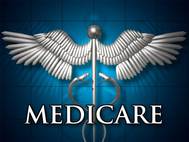 Dr. Jonathan Agbebiyi was sentenced to five years in prison for billing Medicare for unnecessary neurological tests. He was also ordered to pay $2.9 million in restitution. Agbebiyi was an obstetrician/gynecologist at three different clinics. Clinic employees, who lacked any meaningful training, administered neurological tests to patients. The test involved sending an electrical current through the patients’ arms and legs. The clinics then billed Medicare for these diagnostic tests that were medically unnecessary. The patients never received any follow up treatment by neurologists. Billing Medicare for diagnostic tests that are not medically necessary violates the False Claims Act. It can result in liability for three times the amount Medicare paid for the unnecessary tests, plus $11,000 per claim in penalties. And, as in this case, it can also result in significant prison time. The government produced evidence that patients were not referred to Agbebiyi or the clinics by their primary care physicians or for any other legitimate purpose. Rather, they were recruited with prescriptions for controlled substances, cash payments, and fast food. It is illegal to pay kickbacks to patients covered by Medicare or Medicaid to induce them to use the services of a particular physician or clinic, even if the treatment is medically necessary. The government has tremendous resources to track down and prosecute Medicare fraud. This case was investigated by the Federal Bureau of Investigation (FBI), the Office of the Inspector General (OIG) at the Department of Health and Human Services (HHS), and the U.S. Department of Justice acting through its local U.S. Attorney’s office. These government agencies and others frequently work together as part of the Health Care Fraud Prevention & Enforcement Action Team (HEAT), a joint initiative between the Department of Justice (DOJ) and the Department of Health and Human Services (HHS) to prevent and deter fraud and enforce current anti-fraud laws around the country. If you are facing a government investigation or criminal charges for submitting false claims to Medicare or Medicaid – or if you are aware that your employer is submitting false claims to a government healthcare program -- then you should consult with an experienced healthcare attorney immediately to protect your rights. To schedule a free and confidential consultation by telephone or in person, call my office today at (917) 652-6504 or click here to communicate with me via email. John Howley New York, New York The information you obtain at this site is not, nor is it intended to be, legal advice. You should consult an attorney for advice regarding your individual situation. I invite you to contact our law offices and welcome your calls, letters and electronic mail. Contacting us does not create an attorney-client relationship. Please do not send any confidential information to us until such time as an attorney-client relationship has been established. I practice law and offer legal services only in jurisdictions where I am properly authorized to do so. I do not seek to represent anyone in any jurisdiction where this web site does not comply with applicable laws and bar rules.
 A former regional manager at a medical device company will receive an $8 million reward for blowing the whistle on the company’s payment of kickbacks to doctors. The reward will be paid out of a $30 million settlement by Orthofix International NV to settle allegations that its subsidiary, Blackstone Medical Inc., paid illegal kickbacks to physicians in order to induce them to use the company’s spinal surgery products. Susan Hutcheson brought the lawsuit against Blackstone Medical, Inc. under the False Claims Act. That law allows private citizens to start a lawsuit on behalf of the government to recover for false claims submitted to the government. The whistleblower – known as a “qui tam relator” – is entitled to a percentage of any money the government recovers as a result of the lawsuit. Ms. Hutcheson’s lawsuit alleged that Blackstone paid kickbacks to doctors so they would use its products in spinal surgeries. The kickbacks allegedly included monthly payments to the doctors that were disguised as consulting agreements, research grants, royalties, entertainment expenses, travel and accommodations, and speaking engagements. The kickbacks violated the Anti-Kickback Statute. As a result, the surgeries were not eligible for reimbursement from Medicare or Medicaid. When the doctors and hospitals submitted claims to the government healthcare programs, those claims were considered false under the False Claims Act. Blackstone argued that it should not be liable for submitting false claims to Medicare and Medicaid because no claims were submitted by Blackstone itself. Any claims were submitted by the doctors who received the kickbacks or the hospitals where the surgeries were performed. That argument was rejected by the U.S. Court of Appeals for the First Circuit in Boston. The court ruled that Blackstone could be held liable for violations of the False Claims Act if it “caused another entity to present a materially false or fraudulent claim for payment to the government.” Once the court rejected its legal arguments, Blackstone and its parent corporation agreed to settle the case. If you have information that a company is paying kickbacks to health care professionals, then you should consult with an experienced healthcare whistleblower attorney immediately. To schedule a free and confidential consultation by telephone or in person, call my office today at (917) 652-6504 or click here to communicate with me via email. John Howley New York, New York The information you obtain at this site is not, nor is it intended to be, legal advice. You should consult an attorney for advice regarding your individual situation. I invite you to contact our law offices and welcome your calls, letters and electronic mail. Contacting us does not create an attorney-client relationship. Please do not send any confidential information to us until such time as an attorney-client relationship has been established. I practice law and offer legal services only in jurisdictions where I am properly authorized to do so. I do not seek to represent anyone in any jurisdiction where this web site does not comply with applicable laws and bar rules.  Dr. Yong Am Park of Lake City, Florida, was sentenced to two years in prison for Medicaid fraud and prescription drug-related charges. Park also relinquished his medical license. Undercover investigators conducted a series of visits to Park, who prescribed controlled substances such as oxycodone and hydrocodone outside the course of his professional practice. Investigators also discovered that Medicaid was paying for many of these illegal prescriptions. Park was convicted of Medicaid fraud, prescription fraud, unauthorized possession of a prescription form, and selling a controlled substance. The investigation was conducted by multiple agencies including the Florida Attorney General’s Medicaid Fraud Control Unit, the Columbia County Sheriff’s Office, the Lake City Police Department, and the Florida Department of Law Enforcement. If you are under investigation or have been charged with Medicaid or Medicare fraud, or if you have information that your employer is submitting false claims to Medicare or Medicaid, then you should consult with an experienced health care lawyer immediately. To schedule a free and confidential consultation by telephone or in person, call my office today at (917) 652-6504 or click here to communicate with me via email. John Howley The information you obtain at this site is not, nor is it intended to be, legal advice. You should consult an attorney for advice regarding your individual situation. I invite you to contact our law offices and welcome your calls, letters and electronic mail. Contacting us does not create an attorney-client relationship. Please do not send any confidential information to us until such time as an attorney-client relationship has been established. I practice law and offer legal services only in jurisdictions where I am properly authorized to do so. I do not seek to represent anyone in any jurisdiction where this web site does not comply with applicable laws and bar rules. 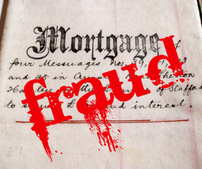 The U.S. Government has recovered more than $1.6 billion from banks that have settled whistleblower or qui tam lawsuits brought by individuals under the False Claims Act. And the individual whistleblowers in those cases have gone home with multi-million dollar rewards for their efforts. One of the most moving cases involved Lynn Szymoniak, a woman who was facing foreclosure of her home. After discovering that her bank was relying on false documents to prove that it owned the mortgage, Ms. Szymoniak commenced a whistleblower or qui tam lawsuit under the False Claims Act. She alleged that banks were using false documents to prove ownership of defaulted mortgages and then submitting insurance claims to the Federal Housing Administration (FHA). Her complaint was filed “under seal,” which means that no one knew about the lawsuit other than her lawyers, the Judge, and officials from the U.S. Department of Justice (DOJ). The local U.S. Attorney then reviewed her allegations and evidence. After concluding that her case had merit, the Government “intervened” – in other words, the Government decided to take over prosecution of her case against the banks. Faced with a lawsuit by the U.S. Department of Justice, the banks settled the case for $95 million. Under the False Claims Act, Ms. Szymoniak was entitled to a reward of between 15% and 25% of the amount of money actually collected by the Government. In this case, Ms. Szymoniak earned an $18 million reward or approximately 19% of what the Government recovered. Other recent mortgage fraud whistleblower rewards include: Kyle Lagow, a former home appraiser, earned a $14.5 million reward for bringing a whistleblower lawsuit that accused sub-prime lender Countrywide Financial of inflating appraisals on government-insured loans. The U.S. Department of Justice intervened in the lawsuit and ultimately negotiated a $1 billion settlement with Bank of America, which bought Countrywide in 2008. Sherry Hunt, an executive with CitiMortgage, took home a $31 million reward plus attorneys’ fees for commencing a lawsuit alleging that CitiMortgage had submitted false appraisals for FHA loans and mortgages. After the government intervened in her lawsuit, CitiMortgage agreed to settle the lawsuit for $158 million. If you have information that a mortgage company, bank, or other financial institution is making false claims tot he government, then you should consult with an experienced lawyer immediately. To schedule a free and confidential consultation by telephone or in person, call my office today at (917) 652-6504 or click here to communicate with me via email. John Howley New York, New York The information you obtain at this site is not, nor is it intended to be, legal advice. You should consult an attorney for advice regarding your individual situation. I invite you to contact our law offices and welcome your calls, letters and electronic mail. Contacting us does not create an attorney-client relationship. Please do not send any confidential information to us until such time as an attorney-client relationship has been established. I practice law and offer legal services only in jurisdictions where I am properly authorized to do so. I do not seek to represent anyone in any jurisdiction where this web site does not comply with applicable laws and bar rules. 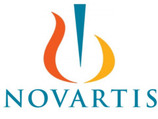 A whistleblower who uncovered unlawful conduct at Novartis and reported it to authorities will receive a share of a $19.9 million settlement the company has agreed to pay in Texas. The whistleblower will also recover their attorneys' fees related to the case. According to a press release issued by Texas Attorney General Greg Abbott, the whistleblower accused Swiss-based pharmaceutical drug company Novartis of engaging in unlawful and deceptive marketing of a topical skin cream product. After investigating the complaint, the State concluded that Novartis unlawfully marketed eczema drug Elidel to treat infant children while failing to disclose the drug’s known harmful side effects – including cancer-related risks. The Texas Attorney General's release states: "Evidence uncovered by the State revealed that Novartis improperly urged physicians to prescribe Elidel to children under two years of age for purposes that had not been approved by the U.S. Food and Drug Administration. Because of the defendant’s misrepresentations, the Texas Medicaid program overpaid for Elidel prescriptions." Novartis agreed to pay a total of $19.9 million to resolve the State of Texas and the federal government’s allegations of off-label marketing. The whistleblower, who is not named in the press release, will receive a portion of that recovery plus their attorneys' fees. Under most false claims act statutes with whistleblower or qui tam provisions, the whistleblower is entitled to between 15% and 25% of the amount actually recovered by the government. In this case, that could amount to a reward of between $3 million and $5 million for the whistleblower. If you have information that a pharmaceutical company is engaged in deceptive marketing, promoting drugs for off-label uses, or paying kickbacks to health care professionals, then you should consult with an experienced lawyer immediately. To schedule a free and confidential consultation by telephone or in person, call my office today at (917) 652-6504 or click here to communicate with me via email. John Howley New York, New York The information you obtain at this site is not, nor is it intended to be, legal advice. You should consult an attorney for advice regarding your individual situation. I invite you to contact our law offices and welcome your calls, letters and electronic mail. Contacting us does not create an attorney-client relationship. Please do not send any confidential information to us until such time as an attorney-client relationship has been established. I practice law and offer legal services only in jurisdictions where I am properly authorized to do so. I do not seek to represent anyone in any jurisdiction where this web site does not comply with applicable laws and bar rules. |
John Howley, Esq.
350 Fifth Avenue 59FL New York, NY 10118 (212) 601-2728 |
